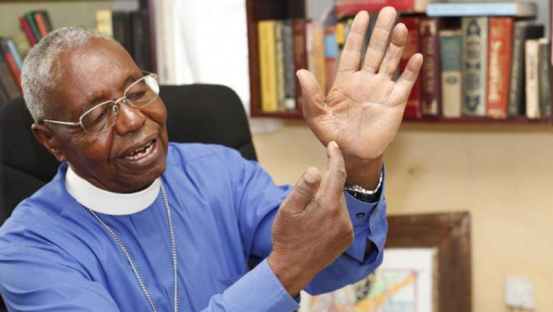×
The Standard e-Paper
Kenya’s Boldest Voice

In recent months, Timothy Njoya has been among the most mentioned names on Twitter. His book -- Divinity of the Clitoris -- political messages and the images he posts gets the internet worked up. He receives comments in hundreds, mostly from younger people suggesting he needs to control himself.
Njoya often responds by asking if they understand who he is. Most of them nonchalantly tell him they do not care. All they want is for Njoya to calm down and stop posting outrageous things on his social media accounts.